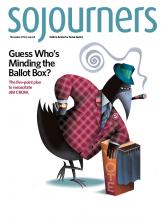YOU HAVE TO feel for Dean Kamen, inventor of the Segway, who probably gets tired of hearing about his own death.
Kamen, still very much alive, introduced the self-balancing vehicle in 2001. But since 2010, when new Segway Inc. owner Jimi Heselden accidentally drove a Segway off a cliff to his death, popular memory has conflated the tragedy with its creator.
There are any number of plausible reasons for this case of false identification, but one of the most persistent deals with moral comeuppance: A person invents an obnoxious, silly vehicle; a person dies from the frivolous invention. It isn’t kind, but that sort of morality tale is enduringly satisfying. When we despair for humanity, our inner cynic appreciates when humanity gets what’s coming.
Kamen isn’t the first victim of misapplied poetic justice—fascination with the archetype of the doomed inventor stretches back to Greek myth, punctuated by names from Hamlet (whose snide “’tis the sport to have the engineer / hoist with his own petard” unwittingly championed his impending demise) to Alfred Nobel, who, despite popular myth, did not actually have many regrets about inventing dynamite.
John Sylvan, inventor of the Keurig single-cup coffee dispenser, is a recent case of the regretful kind—he publicly laments having introduced the waste-belching quick-fix to bulk coffee, and later designed a fully recyclable prototype that would remedy the environmental concern. But most of us only know (or care?) about that first part.
There’s something viscerally satisfying in the demise of a technological Icarus. Such falls let us root for our own inertia—a triumph against the hubris of building something nonessential, and the idealism of thinking it could change the world. To stop at a moral tale of disaster is to keep the focus on poetic justice and our own wisdom. It also, conveniently, keeps us from having to face the complexity of, “What do we do about it now?”
Read the Full Article

